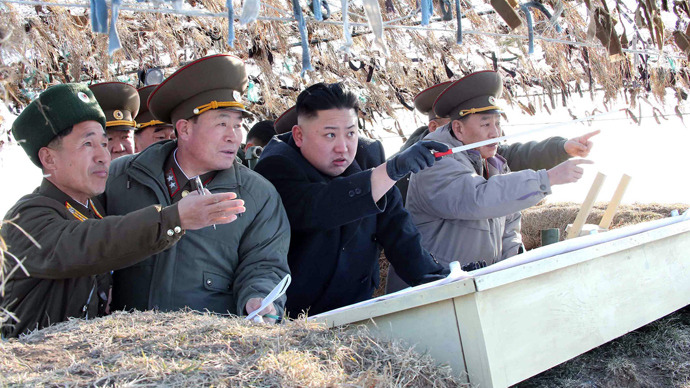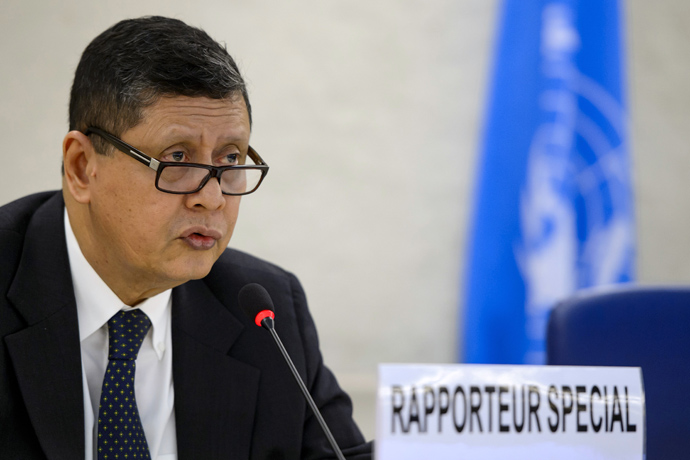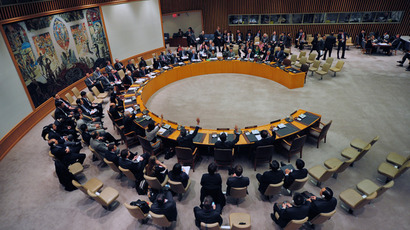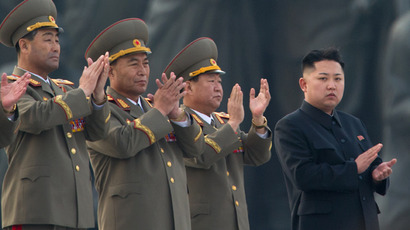Korean armistice still valid, cannot be scrapped ‘unilaterally’ – UN

The armistice ending the Korean War in 1953 is still valid, the United Nations has stressed, despite North Korea’s decision to scrap the agreement that has ensured stability in the peninsula for six decades.
“Let me just stress here that the armistice agreement is
still valid and still in force,” UN spokesman Martin Nesirky
said Monday. “The terms of the armistice agreement do not allow
either side, unilaterally, to free themselves from it.”
Earlier North Korean state media announced that the decades-old ceasefire was “completely invalid,” and that the country had cut its communications hotline with the south, an action later confirmed by South Korea's Unification Ministry.
UN leader Ban Ki-moon believes that the 60-year-old armistice remains a "critical" document, said Nesirky.
Ban is calling on the North “to continue to respect the terms of the armistice agreement as it was approved by the General Assembly,” the spokesman added.
Pyongyang's decision to scrap the accord comes in retaliation to the joint South Korean-United States military drills that kicked off on Monday.
The start of the two-week “Key Resolve” maneuvers follows a week of rising tensions in the peninsula, with North Korean threats of a nuclear showdown following UN sanctions adopted after its third atomic test in February.
With drills underway, Washington ups sanctions
Washington paired the joint drills with a new round of sanctions on North Korea's main foreign exchange bank, along with four senior officials, announced Monday. The new sanctions are part of the existing package meant to put pressure North Korean government to halt its nuclear activity.
The sanctions ban any American individual, business or
organization from conducting business with the officials and the
bank.
One part of the new round has the US Treasury restricting North Korea's Foreign Trade Bank (FTB) and Paek Se-Bong, who heads the country's Second Economic Committee - the body that supervises ballistic missile manufacturing.
"North Korea uses FTB to facilitate transactions on behalf of actors linked to its proliferation network, which is under increasing pressure from recent international sanctions," said Treasury under secretary for terrorism and financial intelligence David Cohen.
The State Department listed Pak To-Chun, head of the Munitions
Industry Department; Chu Kyu-Chang, alternate member of the Korean
Worker Party's political bureau; and O Kuk-Ryol, Vice Chairman of
the North Korean National Defense Commission.
Pyongyang will "continue to face isolation if it refuses to
take concrete steps to comply with its international obligations
and address the concerns of the international community," a
State Department statement on the new sanctions said.

Pyongyang slams UN human rights investigation
Meanwhile on Monday, North Korea harshly criticized the UN Human Rights Council’s initiative to set up a Commission of Inquiry that will further investigate the alleged human rights abuses by the government of the DPRK listed in the newly published 40-page report.
“It is nothing more than an instrument of political plot aimed at sabotaging our socialist system by defaming the dignified image of the DPRK and creating an atmosphere of international pressure under the pretext of 'human rights protection',” North Korea's ambassador So Se Pyong told the Council.
During the discussion at the UN in Geneva, special rapporteur on human rights in the DPRK and author of the report, Marzuki Darusman, called on the UN to “ratchet up” scrutiny and launch “an independent and impartial inquiry into situation.”
UN Human Rights Commissioner Navi Pillay called the
deteriorating human rights situation in North Korea “the worst
in the whole world,” as cited by Reuters.














